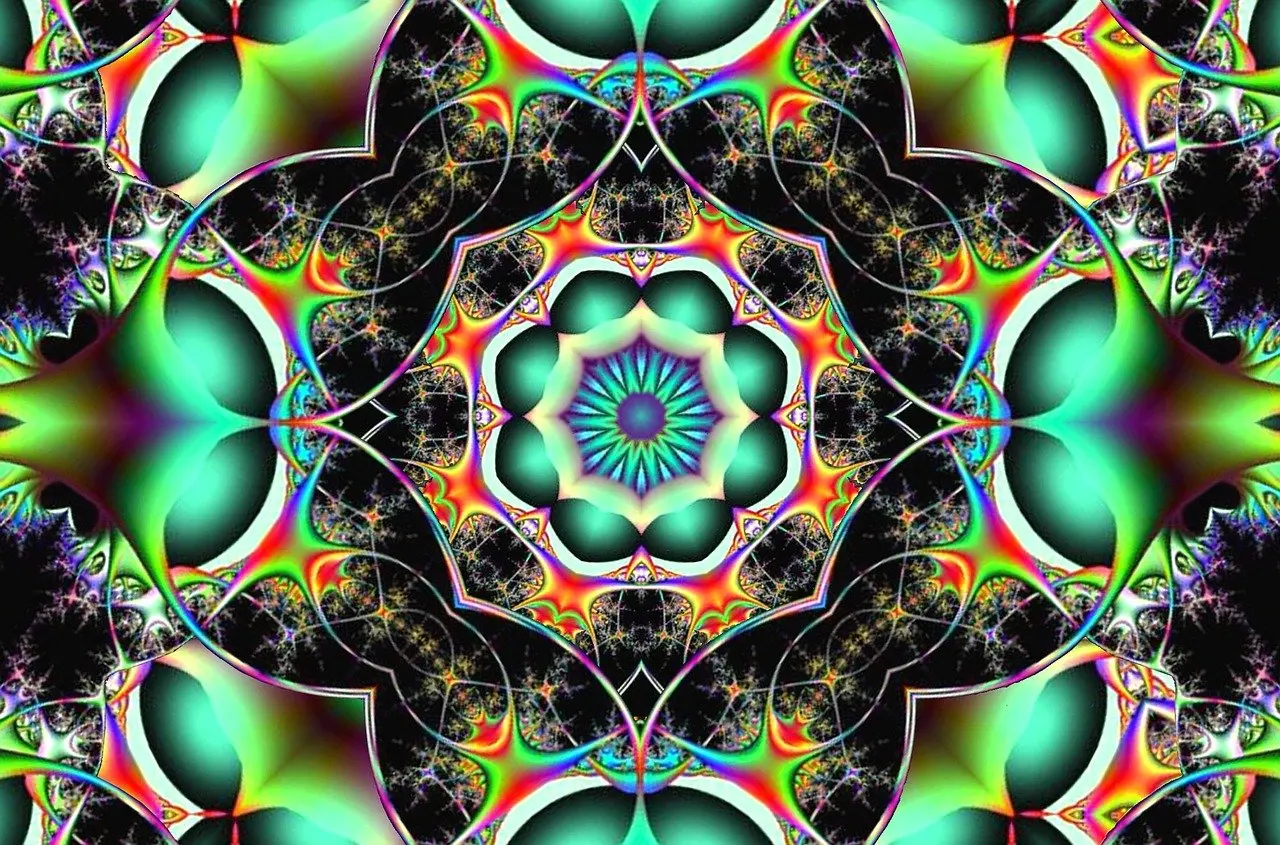Cao Dai Teachings: Divine Messages and Universal Truths

Looking for more amazing products? Check out our online store and explore our collection here! Happy shopping!
Before diving in, please note: This post is for informational purposes only. If you’d like to know more about how we approach topics, feel free to check out our friendly Disclaimer Page.
Hey there, amazing readers! 
We’re committed to delivering quality posts, and your support (even just sticking around despite the ads) means everything to us. So, bear with us, and thanks for helping us keep the good vibes rolling. Now, on to the fun stuff!
TRANSLATE BUTTON AT THE END OF THE ARTICLE
Introduction to Cao Dai Teachings
Cao Dai is a unique religious movement that originated in Vietnam in the 1920s, blending elements of various world religions such as Buddhism, Taoism, Confucianism, and Christianity into a cohesive spiritual practice.
Followers of Cao Dai believe in a Supreme Being that governs the universe and provides divine guidance to humanity.
The teachings of Cao Dai emphasize the pursuit of inner peace, moral conduct, and unity among all people, regardless of their religious background.
This article will delve into the origins of Cao Dai, its core beliefs, divine messages, universal truths, deities, moral principles, cultural influence, rituals, perspectives on life and death, role in promoting peace, and modern interpretations.
Origins of Cao Dai Religion
The Cao Dai religion was founded in 1926 by Ngo Van Chieu, a civil servant in French colonial Vietnam who claimed to receive direct communication from the Divine.
Chieu believed that he was chosen to establish a new religious movement that would unify the teachings of various faiths into one universal truth.
Drawing inspiration from spirit mediums and previous religious leaders, Chieu sought to create a harmonious blend of Eastern and Western philosophies that would resonate with the Vietnamese people.
The Cao Dai religion quickly gained followers, attracted by its message of peace, unity, and spiritual enlightenment.
Core Beliefs of Cao Dai Followers
Followers of Cao Dai believe in the existence of a Supreme Being, known as Cao Dai, who created the universe and governs all aspects of life.
This Supreme Being is believed to communicate with humanity through spirit mediums, conveying divine messages and guidance.
Cao Dai followers also believe in the concept of karma, where one’s actions in this life will determine their fate in future existences.
Reincarnation is a central tenet of Cao Dai beliefs, with the goal of achieving spiritual enlightenment and liberation from the cycle of birth and death.
The religion also promotes moral conduct, compassion, and humility as essential virtues for spiritual growth and harmony with the Divine.
The Divine Messages of Cao Dai
Central to Cao Dai teachings are the divine messages received through spirit mediums, who serve as a conduit between the mortal world and the spiritual realm.
These messages often convey guidance on moral conduct, spiritual practices, and the importance of inner peace.
Followers of Cao Dai believe that by following these divine messages, they can align themselves with the will of the Supreme Being and achieve spiritual enlightenment.
The messages are seen as a source of wisdom and inspiration, guiding followers on their spiritual journey towards self-realization and unity with the Divine.
Universal Truths in Cao Dai Teachings
Cao Dai teachings emphasize universal truths that are applicable to all people, regardless of their religious beliefs.
These truths include the importance of compassion, forgiveness, tolerance, and love as guiding principles for harmonious living.
Cao Dai promotes the idea that all religions lead to the same ultimate truth, encouraging followers to respect and learn from diverse spiritual traditions.
The religion also emphasizes the interconnectedness of all beings and the need to cultivate virtues that promote peace, understanding, and cooperation among individuals and communities.
By embracing these universal truths, Cao Dai followers strive to create a more compassionate and enlightened society.
The Pantheon of Cao Dai Deities
Cao Dai incorporates a pantheon of deities from various religious traditions, including Buddha, Jesus Christ, Laozi, and Confucius, among others.
These deities are revered as spiritual guides and teachers who embody different aspects of the Divine.
Followers of Cao Dai believe that each deity offers unique insights and blessings that can help individuals on their spiritual journey.
The pantheon reflects the inclusive nature of Cao Dai, which seeks to unite diverse spiritual beliefs into a cohesive whole.
By honoring these deities, followers of Cao Dai seek to cultivate virtues such as wisdom, compassion, and moral integrity in their lives.
Principles of Moral Conduct in Cao Dai
Moral conduct is a cornerstone of Cao Dai teachings, emphasizing the importance of ethical behavior, compassion, and humility in all aspects of life.
Followers are encouraged to practice the Five Precepts, which include refraining from killing, stealing, sexual misconduct, false speech, and intoxication.
These precepts serve as a guide for moral living and cultivating virtue in daily interactions.
Cao Dai also promotes the practice of charity, kindness, and forgiveness as essential components of spiritual growth and harmony with the Divine.
By upholding these principles of moral conduct, followers of Cao Dai strive to create a more just, compassionate, and peaceful world.
Cao Dai’s Influence on Vietnamese Culture
Cao Dai has had a significant influence on Vietnamese culture, shaping religious beliefs, moral values, and social practices in the country.
The religion’s emphasis on unity, peace, and compassion has resonated with many Vietnamese people, contributing to a sense of national identity and shared values.
Cao Dai temples, with their distinctive architecture and colorful symbols, have become important cultural landmarks in Vietnam, attracting both tourists and worshipers.
The teachings of Cao Dai have also inspired art, literature, and music, reflecting the spiritual and philosophical aspects of the religion.
Overall, Cao Dai has played a vital role in shaping Vietnamese culture and promoting moral values that emphasize harmony and cooperation.
Rituals and Practices in Cao Dai Worship
Cao Dai worship involves a rich tapestry of rituals and practices that reflect the religion’s syncretic nature and spiritual beliefs.
Followers gather in temples for prayer ceremonies, meditation, and communal worship, guided by ordained clergy known as cardinals and priests.
Rituals often include elaborate processions, chanting of sacred texts, and offerings to honor the divine deities.
Cao Dai followers also observe festivals and holidays that mark important events in the spiritual calendar, such as the Birth of the Divine Eye and the Day of Binding the Soil.
These rituals and practices serve to deepen the spiritual connection between individuals and the Divine, fostering a sense of community and shared devotion among followers.
Cao Dai’s Perspective on Life and Death
Cao Dai teachings offer a unique perspective on life and death, emphasizing the cyclical nature of existence and the eternal journey of the soul.
Followers believe that the physical body is just a temporary vessel for the immortal soul, which undergoes multiple reincarnations to achieve spiritual enlightenment.
Death is seen as a transition to another state of being, where the soul continues its journey towards liberation from the cycle of birth and death.
Cao Dai encourages followers to embrace the impermanence of life, cultivate virtues that transcend worldly attachments, and strive for spiritual growth in each incarnation.
By accepting the inevitability of death and the continuity of the soul, followers of Cao Dai find solace in the eternal nature of the Divine.
Cao Dai’s Role in Promoting Peace and Unity
Cao Dai plays a vital role in promoting peace and unity among diverse religious communities in Vietnam and around the world.
The religion’s inclusive beliefs and emphasis on universal truths provide a common ground for dialogue, cooperation, and understanding among people of different faiths.
Cao Dai followers actively engage in interfaith initiatives, charitable work, and social projects that seek to foster harmony and cooperation among individuals and communities.
The religion’s teachings on compassion, forgiveness, and tolerance serve as a powerful antidote to conflict, division, and prejudice, promoting a culture of peace and mutual respect.
By embodying these principles in their actions, Cao Dai followers work towards building a more harmonious and inclusive society.
Modern Interpretations of Cao Dai Teachings
In modern times, Cao Dai teachings continue to evolve and adapt to the changing needs of society, offering spiritual guidance and moral principles that resonate with contemporary challenges.
The religion’s message of peace, unity, and compassion remains relevant in an increasingly interconnected world, where cultural diversity and religious pluralism are celebrated.
Cao Dai followers are actively involved in social justice causes, environmental activism, and humanitarian efforts that reflect the core values of the religion.
The teachings of Cao Dai inspire individuals to cultivate virtues such as empathy, kindness, and integrity in their personal and professional lives, contributing to a more ethical, compassionate, and sustainable world.
As Cao Dai continues to navigate the complexities of the modern era, its timeless message of love, harmony, and spiritual growth offers hope and guidance to all who seek a path towards enlightenment.
Conclusion
In conclusion, Cao Dai teachings encompass a rich tapestry of spiritual beliefs, moral principles, and universal truths that promote peace, unity, and compassion among all people.
The religion’s origins, core beliefs, divine messages, deities, moral conduct, cultural influence, rituals, perspectives on life and death, role in promoting peace, and modern interpretations all contribute to its enduring relevance and significance in the world today.
By embracing the inclusive and harmonious teachings of Cao Dai, followers strive to cultivate virtues that enhance their spiritual growth, promote social harmony, and contribute to a more compassionate and enlightened society.
As Cao Dai continues to inspire individuals to seek inner peace, moral integrity, and unity with the Divine, its message of love, compassion, and universal brotherhood shines brightly as a beacon of hope and guidance in an ever-evolving world.

The Enlightenment Journey is a remarkable collection of writings authored by a distinguished group of experts in the fields of spirituality, new age, and esoteric knowledge.
This anthology features a diverse assembly of well-experienced authors who bring their profound insights and credible perspectives to the forefront.
Each contributor possesses a wealth of knowledge and wisdom, making them authorities in their respective domains.
Together, they offer readers a transformative journey into the realms of spiritual growth, self-discovery, and esoteric enlightenment.
The Enlightenment Journey is a testament to the collective expertise of these luminaries, providing readers with a rich tapestry of ideas and information to illuminate their spiritual path.
Our Diverse Expertise
While our primary focus is on spirituality and esotericism, we are equally passionate about exploring a wide range of other topics and niches 

To ensure we provide the most accurate and valuable insights, we collaborate with trusted experts in their respective domains 
Our blog originally focused on spirituality and metaphysics, but we’ve since expanded to cover a wide range of niches. Don’t worry—we continue to publish a lot of articles on spirituality! Frequently visit our blog to explore our diverse content and stay tuned for more insightful reads.
Hey there, amazing reader! 
Check out our store here and take a peek at some of our featured products below! Thanks for being awesome!










